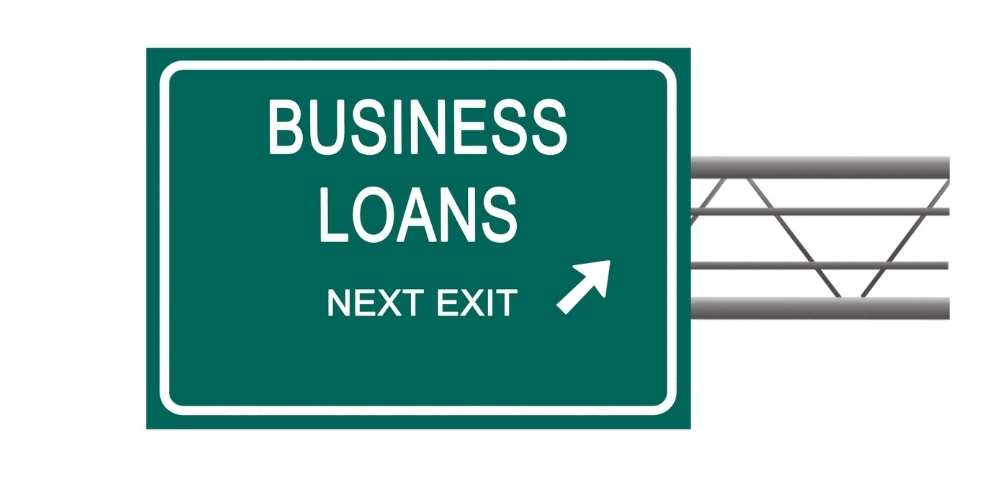Business loans play a crucial role in helping entrepreneurs and business owners in the UK fund their ventures, expand their operations, or meet various financial needs. Understanding how business loans work is essential for anyone looking to navigate the lending landscape effectively in the UK. In this beginner’s guide, we will explore the key aspects of business loans in the UK, including what they are, the types available, eligibility criteria, steps to apply, factors to consider, managing repayments, and the benefits and risks involved.
A business loan is a financial product offered by banks, financial institutions, and alternative lenders to provide businesses with the necessary funds to meet their financial requirements. They can be used for purposes such as purchasing equipment, investing in inventory, hiring staff, or expanding business premises. Before applying for a business loan, it’s crucial to understand the different types available, including term loans, equipment loans, lines of credit, and SBA loans, among others. Each type has its own terms, repayment plans, and eligibility requirements.

Eligibility for a business loan in the UK varies depending on factors such as the lender’s criteria, the nature and size of the business, credit history, revenue, and collateral. Meeting these criteria is essential for loan approval. Once eligibility is determined, there are specific steps to follow when applying for a business loan. These involve determining the loan purpose and amount, researching different lenders to find the best fit, gathering necessary documentation, completing the loan application, and waiting for loan approval.
Before finalizing a business loan, it’s crucial to carefully consider certain factors. These include the interest rates, repayment terms, and collateral requirements set by the lenders. Managing loan repayments effectively is vital to ensure financial stability and avoid default. Creating a repayment plan, monitoring cash flow, and seeking financial advice can help ensure successful repayment.
While business loans offer several benefits such as access to capital, flexibility in use, and potential business growth, they also carry certain risks. These risks may include incurring debt, high-interest costs, and the need to provide collateral.
By understanding how business loans work and considering the factors mentioned above, entrepreneurs and business owners in the UK can make informed decisions when it comes to securing the necessary funds for their business ventures.
Key takeaway:
- Business loans in the UK help businesses access funding: Business loans provide financial support to businesses in the UK, helping them meet various needs like expansion, inventory, or equipment purchases.
- Understanding how business loans work is crucial: Knowing the concept, types, and eligibility criteria of business loans in the UK allows businesses to make informed decisions about their borrowing options.
- Steps and factors to consider before applying for a business loan: By following a systematic process, businesses can successfully apply for a business loan, considering factors such as interest rates, repayment terms, and collateral requirements.
- Proper management of loan repayments is essential: Implementing a repayment plan, monitoring cash flow, seeking financial advice, and being aware of the risks associated with business loans can help businesses effectively manage their loan obligations.
How Business Loans Work in the UK
Business loans in the UK operate by providing financial assistance to businesses for various purposes. The process entails applying for a loan from a financial institution, supplying necessary documentation, and meeting eligibility criteria. The loan amount and terms are determined based on factors such as creditworthiness, business plan, and collateral. Interest rates fluctuate depending on the lender and the type of loan. Repayment terms can span from months to years, with regular installments. It is crucial to carefully evaluate the required loan amount and the ability to repay it, as failure to make payments can have severe consequences for the business. Understanding the terms and conditions of the loan agreement is vital for making well-informed decisions.
Fact: In the UK, small businesses constitute 60% of private sector employment.
What is a Business Loan?
A business loan is a financial tool that allows businesses to borrow money from a lender for various purposes. It provides businesses with capital to fund their operations, expand their business, purchase equipment, or invest in new projects.

Business loans can be obtained from banks, credit unions, online lenders, or other financial institutions.
To qualify for a business loan, businesses need to meet certain criteria set by the lender. This may include having a solid business plan, a good credit score, sufficient cash flow, and collateral to secure the loan. Interest rates and repayment terms vary depending on the lender and the borrower’s creditworthiness.
Business loans offer several benefits to businesses. They provide access to capital that might otherwise be challenging to obtain, allow for flexible repayment options, and can help improve cash flow. However, there are also risks associated with business loans. Businesses need to carefully consider their ability to repay the loan and the potential impact on their financial stability.
Business loans have been an essential part of the financial landscape for centuries. In ancient times, merchants and traders would seek loans from wealthy individuals to finance their business ventures. As economies evolved, so did the concept of business loans. Today, businesses can access loans from a wide range of lenders, both traditional and online. The availability of business loans has enabled countless businesses to start, grow, and thrive. However, it is important for businesses to approach business loans responsibly and consider the implications on their financial health. By understanding the fundamentals of a business loan and carefully considering their options, businesses can make informed decisions and utilize business loans to support their growth and success.

Types of Business Loans
- Term Loans: These are loans that are repaid over a fixed period of time, typically with regular monthly payments. They are commonly used for long-term investments such as purchasing equipment or expanding business operations.
- Line of Credit: A line of credit is a flexible form of borrowing that allows businesses to access funds as needed. It provides a revolving credit limit that can be used and repaid multiple times, making it suitable for managing cash flow fluctuations or covering short-term expenses.
- Invoice Financing: Also known as accounts receivable financing, this type of loan allows businesses to borrow money against their outstanding invoices. The lender provides an advance on the invoice amount and the business repays the loan once the customer pays the invoice.
- SBA Loans: Small Business Administration (SBA) loans are government-backed loans designed to support small businesses. They offer favorable terms and lower interest rates compared to traditional bank loans, but the application process can be more complex.
- Equipment Loans: These loans are specifically designed to finance the purchase of new equipment or machinery. The equipment being purchased serves as collateral for the loan, making it easier for businesses to secure funding.
Sarah, a small business owner, needed funds to purchase new inventory for her clothing boutique. She applied for a line of credit, which provided her the flexibility to borrow the necessary amount when she needed it. This allowed her to take advantage of bulk discounts from her suppliers and boost her profit margin. With the line of credit, Sarah was able to successfully manage her cash flow and ensure that her boutique always had the latest fashion trends in stock.

Eligibility Criteria for Business Loans
When applying for financing for your business, it is important to consider the eligibility criteria for business loans in the UK. Here are some key factors to keep in mind:
- Credit score: To assess your creditworthiness, lenders will check both your personal and business credit scores. Having a good credit score increases your chances of approval.
- Years in operation: Most lenders prefer businesses that have been operating for at least two years. Start-up businesses may find it more challenging to qualify.
- Business revenue: Lenders will review your business’s revenue and financial statements to determine its financial stability. Having higher revenue increases your chances of approval.
- Business plan: It is important to have a solid and detailed business plan that showcases your understanding of your industry and your ability to repay the loan. Lenders may request to review your business plan.
- Collateral: Some lenders may require collateral, such as business assets or personal guarantees, to secure the loan.
- Legal status: Your business must have the appropriate legal structure and be registered in the UK to be eligible for a business loan.
Pro-tip: Before applying for a business loan, take the time to review and improve your credit score, gather necessary financial documents, and prepare a comprehensive business plan. This will increase your chances of meeting the eligibility criteria and obtaining the financing you need for your business.
Steps to Apply for a Business Loan in the UK
Looking to secure a business loan in the UK? Well, you’re in the right place! In this ultimate guide, we’ll walk you through the essential steps to apply for a business loan. From determining your loan purpose and amount to researching different lenders, gathering necessary documentation, completing the loan application, and eagerly waiting for loan approval, this section has got you covered. So, let’s jump right in and make your business loan journey a breeze!
Determine Loan Purpose and Amount

When determining the loan purpose and amount of a business loan in the UK, it is important to follow these steps:
- Identify your specific loan purpose. This could be for starting a new business, expanding an existing business, purchasing equipment, or managing cash flow.
- Evaluate your financial needs. Determine the amount of money required to fulfill your loan purpose. Consider all costs involved, such as equipment costs, operational expenses, and working capital.
- Conduct market research. Analyze the current market conditions and compare prices of necessary resources or investments. This will help you determine a realistic loan amount.
- Analyze your business’s financial health. Review your financial statements, including cash flow, profit and loss, and balance sheet, to understand your business’s financial standing and repayment ability.
- Consider future expenses. Anticipate any upcoming costs or obstacles that may require additional funds. It is crucial to factor in these potential expenses when determining the loan amount.
- Seek expert advice. Consult with financial advisors, accountants, or business mentors who can provide insights and expertise in determining the appropriate loan purpose and amount.
By carefully considering these steps, you can determine the ideal loan purpose and amount that aligns with your business goals and financial needs.
Research Different Lenders
When conducting research on business loans in the UK, it is crucial to assess multiple factors to make an informed decision:
- Interest Rates: Compare the interest rates offered by various lenders to ensure securing the most favorable loan terms.
- Repayment Terms: Evaluate the lender’s repayment terms, considering the loan duration and payment frequency. Opt for a lender that aligns with your business’s financial capabilities.
- Collateral Requirements: Determine if the loan necessitates collateral and evaluate the acceptable collateral type and value for each lender.
Furthermore, when conducting your research, consider the following suggestions:
- Read customer reviews and testimonials to gain insights into the lender’s reputation and customer service.
- Request recommendations from fellow business owners or industry professionals.
- Consult with a financial advisor or consultant who can provide guidance and help compare different lender options.

Gather Necessary Documentation
To gather necessary documentation for a business loan in the UK, follow these steps:
- Identification documents: Prepare identification documents such as your passport, driving license, or national identity card. These will be required to verify your identity.
- Proof of income: Gather documents that demonstrate your business’s income, such as bank statements, tax returns, and financial statements. Lenders want to ensure that you have a steady income to repay the loan.
- Business plan: Create a comprehensive business plan that outlines your goals, financial projections, and how the loan will be utilized. This showcases your business’s potential and helps lenders assess the viability of your venture.
- Debt obligations: Provide information about any existing debts or loans your business may have. This includes loan agreements, repayment schedules, and proof of timely payments.
- Collateral documents: If you are offering collateral for the loan, gather relevant documents such as property titles, equipment invoices, or inventory details. This provides security to the lender in case of default.
- Legal documents: Include legal documents associated with your business, such as licenses, permits, contracts, and partnership agreements. These help establish the legitimacy of your business and its operations.
- Personal and business credit history: Gather credit reports for both yourself and your business. Lenders review credit history to assess your repayment ability and financial responsibility.
By having these necessary documents ready, you can streamline the loan application process and increase your chances of approval.
Gathering necessary documentation for a business loan is crucial to demonstrate your financial stability and business potential. Lenders require these documents to assess the viability of your business and determine if you are a suitable candidate for the loan. By collecting and organizing the required paperwork in advance, you not only expedite the application process but also show your preparedness and commitment to obtaining the loan. Submitting all relevant documents accurately and promptly helps build trust with the lender, increasing the likelihood of loan approval. Remember, each lender may have specific document requirements, so it is essential to check with them beforehand to ensure you have everything needed. Proper and thorough documentation is an important step towards securing the necessary financial support for your business’s growth and success.

Complete the Loan Application
To successfully complete the loan application for a business loan, it is important to follow these steps:
- Gather all the necessary documentation, including financial statements, bank statements, and tax returns.
- Accurately and promptly fill out the loan application form.
- Include relevant information about your business, such as its legal structure, industry, and the purpose of the loan.
- Provide details about your personal financial history, which should include your assets, liabilities, and credit score.
- Indicate any collateral that you are willing to offer as security for the loan.
- Specify the amount of money you are requesting and the desired repayment term.
- Explain how the loan will be used and the benefits it will bring to your business.
- Attach any extra supporting documents, such as business plans or customer contracts, that can strengthen your loan application.
- Carefully review the application to ensure that all information is accurate and complete.
- Submit the application along with any required fees or supporting documents.
By diligently following these steps, you can successfully complete the loan application process and increase your chances of obtaining a business loan. Remember to provide all necessary information and maintain honesty and transparency throughout the application. Best of luck with your loan application!
Wait for Loan Approval
Waiting for loan approval is an important step in the process of applying for a business loan. Once you have submitted your loan application, it is essential to patiently wait for the lender’s decision. During this time, it is crucial to remain proactive and continue monitoring your financial situation.
- Stay informed: Keep track of the timelines provided by the lender and any additional documentation they may require.
- Follow up: If there is a delay in the loan approval process, it is acceptable to reach out to the lender for an update. However, avoid excessive follow-ups that may negatively impact your application.
- Prepare for the next steps: While waiting for loan approval, continue to research and explore alternative funding options. This will ensure that you have backup plans in case your loan application is not approved.
- Stay organized: Use this waiting period to gather and organize any additional information that may be needed, such as financial statements or business plans.
- Maintain strong financial practices: During the wait for loan approval, it is important to manage your business finances responsibly, making timely payments and keeping track of your cash flow. This will demonstrate your ability to handle financial obligations to the lender.
Remember, the wait for loan approval may vary depending on the lender and the complexity of your application. By staying proactive and prepared, you can make the most of this waiting period and ensure a smoother loan approval process.

Factors to Consider before Taking a Business Loan
Before diving into the intricacies of obtaining a business loan, it’s crucial to reflect on the essential factors that need consideration. In this section, we’ll explore the key elements that can greatly impact your decision-making process. From interest rates to repayment terms and collateral requirements, each sub-section sheds light on crucial factors that will help you navigate the intricate landscape of business loans in the UK. So, buckle up and get ready to make informed choices that can potentially propel your business towards success.
Interest Rates
| Interest Rates | Factors to Consider |
| Interest rates play a crucial role in deciding the cost of borrowing for a business loan. | The interest rates offered by different lenders can vary significantly. |
| Gathering information about the current interest rates in the market is essential for comparing loan options. | Business owners should consider their financial capability to repay the loan amount and the impact of interest rates on their cash flow. |
| Lower interest rates can significantly reduce the overall borrowing costs, making it easier to repay the loan. | Understanding the terms associated with the interest rates is crucial, such as whether they are fixed or variable. |
| The repayment terms and the collateral required by lenders often depend on the interest rates offered. | Business owners should carefully assess the potential risks associated with interest rate fluctuations and plan accordingly. |
| Comparing different loan options and negotiating for lower interest rates can result in significant cost savings for businesses. | It is important to consider the long-term financial implications of the interest rates chosen for the business loan. |
Pro Tip: Before finalizing a business loan, it’s crucial to thoroughly analyze the interest rates and their impact on your overall financial situation. Don’t hesitate to negotiate with lenders for better rates, as even a small reduction can translate to significant savings in the long run.
Repayment Terms
Repayment terms are a crucial consideration when acquiring a business loan in the UK. It is vital to comprehend and negotiate favorable terms that align with your company’s financial capabilities. Here are the key factors to take into account:
- Interest rate: The interest rate plays a significant role in determining the borrowing cost. It is advisable to compare rates from different lenders to secure the most competitive option.
- Loan duration: The length of time allocated for repaying the loan impacts your cash flow. While longer repayment terms may lead to lower monthly payments, they may also result in higher interest payments over time.
- Payment frequency: It is important to consider the frequency of loan repayments, whether it’s monthly, quarterly, or annually. Choose a schedule that aligns with your business’s revenue cycles and cash flow.
- Flexibility: Look for loan options that offer flexible repayment terms. Some lenders allow extra repayments or adjustment of the payment schedule to account for revenue fluctuations.
- Early repayment options: Familiarize yourself with any penalties or fees associated with repaying the loan before the agreed-upon term. Having the flexibility to repay the loan early can result in interest savings.

When evaluating repayment terms, consider your business’s financial situation, goals, and projections. It is crucial to carefully review the terms and ensure they align with your business’s ability to meet loan obligations. If needed, seek expert advice to make informed decisions regarding repayment terms.
Collateral
| Collateral | Definition | Examples | Importance |
| Collateral | Assets that a borrower pledges to a lender as security for a loan | Real estate, inventory, equipment, vehicles | Provides security for the lender in case the borrower defaults on the loan |
Collateral is a vital aspect when it comes to business loans. It basically refers to the assets that a borrower pledges to a lender as security for a loan. Some typical examples of collateral include real estate, inventory, equipment, and vehicles. By offering collateral, the borrower provides a level of security for the lender, thereby reducing the risk involved in lending money.
The importance of collateral lies in its ability to safeguard the lender’s interests. In case the borrower fails to repay the loan, the lender can seize the collateral and sell it to recover the outstanding balance. This ensures that the lender has a way to recover their investment and minimizes the potential financial loss.
Having collateral can also benefit the borrower. It often allows them to access larger loan amounts or secure lower interest rates. Lenders are more inclined to provide favorable loan terms when collateral is involved as it helps mitigate their risk.
Therefore, when considering a business loan, it is crucial to evaluate the collateral you can provide. Assess your assets and determine their value to enhance your loan application. Make sure to provide accurate and detailed information about your collateral to increase your chances of securing the loan and negotiating favorable terms.
Managing Business Loan Repayments

As you navigate the world of business loans in the UK, it’s crucial to have a solid grasp on managing your loan repayments. In this section, we’ll delve into some key aspects of effectively managing your business loan repayments. From creating a repayment plan tailored to your unique circumstances, to closely monitoring your cash flow, seeking financial advice, and understanding the potential risks involved – we’ve got you covered. Let’s dive in and ensure your loan repayment journey is smooth sailing.
Creating a Repayment Plan
Creating a repayment plan for your business loan is crucial to ensure timely repayments and financial stability. Follow these steps to create an effective repayment plan:
- Calculate Loan Repayment Amount: Determine the total amount you need to repay, including the principal amount and interest.
- Analyze Cash Flow: Assess your business’s cash flow to determine the amount you can comfortably allocate towards loan repayment each month.
- Prioritize Payments: Identify which loan payments should be prioritized based on their interest rates and importance to your business’s financial health.
- Create a Budget: Develop a comprehensive budget that includes your loan repayment amount and all other business expenses.
- Set Repayment Schedule: Decide on a repayment schedule that suits your business’s financial capacity. This could be monthly, quarterly, or annually.
- Automate Payments: Set up automatic payments to ensure you never miss a repayment. This can help you avoid late fees and maintain a good credit history.
- Monitor and Adjust: Regularly review your repayment plan and make adjustments if needed. This could involve renegotiating terms with your lender or restructuring your business finances.
- Seek Professional Advice: Consider consulting with a financial advisor or accountant to get expert guidance on managing your loan repayments effectively.
Taking these steps will help you stay on track with your loan repayments and maintain your business’s financial stability.
Monitoring Cash Flow
Monitoring cash flow is crucial for businesses to maintain financial stability and growth. To effectively monitor cash flow, businesses should follow these steps:
- Track Income and Expenses: Keep detailed records of all incoming and outgoing finances to gain a clear understanding of the company’s cash flow.
- Regularly Review Financial Statements: Analyze financial statements, such as the balance sheet, income statement, and cash flow statement, to identify trends and any potential issues.
- Use Accounting Software: Utilize accounting software to automate financial tracking, which can provide real-time updates on cash flow and generate reports for analysis.
- Forecast Cash Flow: Project future cash flow based on anticipated income and expenses to identify potential gaps or surpluses.
- Manage Accounts Receivable: Implement strategies to ensure timely payments from customers, such as offering incentives for early payment or setting clear payment terms.
- Control Accounts Payable: Negotiate favorable payment terms with suppliers and ensure bills are paid on time to maintain a positive relationship and avoid late fees.
- Create a Cash Reserve: Set aside funds for emergencies or unexpected expenses to ensure the business can continue operating smoothly during challenging times.
- Regularly Review and Adjust: Continuously monitor cash flow and adapt strategies as needed to maintain a healthy financial position.
By diligently monitoring cash flow, businesses can make informed decisions to optimize financial stability and growth.

Seeking Financial Advice
Seeking financial advice is crucial when considering a business loan as it helps in making informed decisions. Financial advisors, with their expertise in the financial industry, can provide valuable insights and guidance. They can assess your financial situation, analyze loan options, and help you understand the potential risks and benefits involved. It is important to consult professionals with experience in business finance who can provide personalized recommendations tailored to your specific needs. These advisors can help you evaluate the affordability of the loan, understand the interest rates and repayment terms while evaluating the impact on your overall financial health. Additionally, they can assist in creating a repayment plan that aligns with your business’s cash flow, enabling you to manage the loan effectively. Seeking financial advice minimizes the risks associated with taking a business loan and ensures that you make well-informed decisions in line with your business goals and financial capabilities.
Risks of Business Loans
Before making a decision, it is important to carefully consider the risks associated with business loans. Here are some key factors to keep in mind:
- Higher interest rates: Business loans often have higher interest rates compared to personal loans or other types of financing. This can increase borrowing costs and strain your finances.
- Repayment challenges: Business loans may have strict repayment terms and require larger monthly payments. If your business experiences a downturn or cash flow issues, meeting these obligations can be difficult.
- Collateral requirements: Many lenders require collateral to secure a business loan. This means you may need to use valuable assets, such as real estate or equipment, as security. If you are unable to repay the loan, the lender may seize your collateral.
- Impact on credit score: Taking on a business loan increases your overall debt burden, which can affect your credit score. Defaulting on the loan or making late payments can have a negative impact on your creditworthiness and make it harder to secure future financing.
Considering these risks, it is important to carefully evaluate your business’s financial situation and ability to repay the loan before moving forward. Here are some suggestions to help mitigate these risks:
- Shop around and compare offers from different lenders to find the most favorable terms.
- Create a comprehensive business plan that outlines how you will use the loan funds and generate enough revenue to repay the loan.
- Maintain a strong cash flow management system to ensure you have enough funds to meet loan obligations.
- Seek advice from financial professionals or business advisors to assess potential risks and explore alternative financing options.
Frequently Asked Questions
What are unsecured business loans and how can they benefit my business?
Unsecured business loans do not require collateral and can be obtained based on the borrower’s creditworthiness. They are suitable for businesses with fewer physical assets and can provide flexibility in terms of usage. However, they may have higher interest rates compared to secured loans.
What role does personal credit history play in obtaining a business loan?
Personal credit history is important for lenders when evaluating the creditworthiness of a borrower. A good personal credit history can improve the chances of getting approved for a business loan and may also lead to better loan terms and interest rates.
How can commercial property be used to secure a loan?
Commercial property can be used as collateral to secure a loan. This means that if the borrower defaults on the loan, the lender can claim the property. Using commercial property as security can help businesses access larger loan amounts and secure lower interest rates.
What is an interest-free period in relation to business loans?
An interest-free period is a specific time frame during which no interest is charged on a loan. It can be beneficial for businesses to take advantage of an interest-free period to reduce financing costs and manage cash flow effectively. However, it is important to carefully review the terms and conditions of the loan to understand when and how interest charges will apply.
What is the benefit of long-term borrowing for business purposes?
Long-term borrowing can provide businesses with a stable source of funding to support long-term goals and investments. It allows businesses to spread out repayments over a longer period, which can help manage cash flow more effectively. However, it is important to consider the total cost of borrowing over the loan term, including interest charges.
Can I apply for a business loan in person at a bank branch?
Yes, many banks offer the option to apply for a business loan in person at a bank branch. This allows borrowers to discuss their financing needs directly with a bank representative and provide any required documentation. However, it is also common to apply for a business loan online or over the phone for convenience and efficiency.


